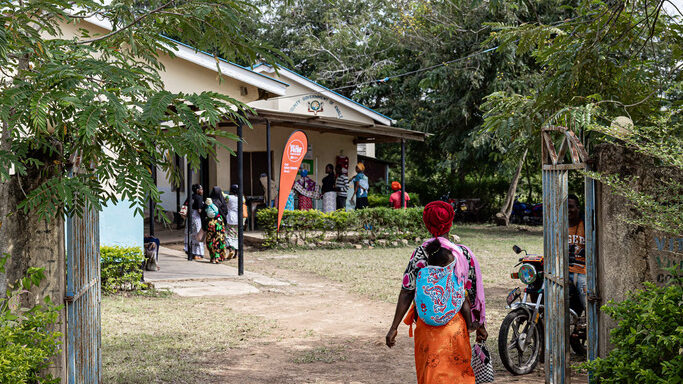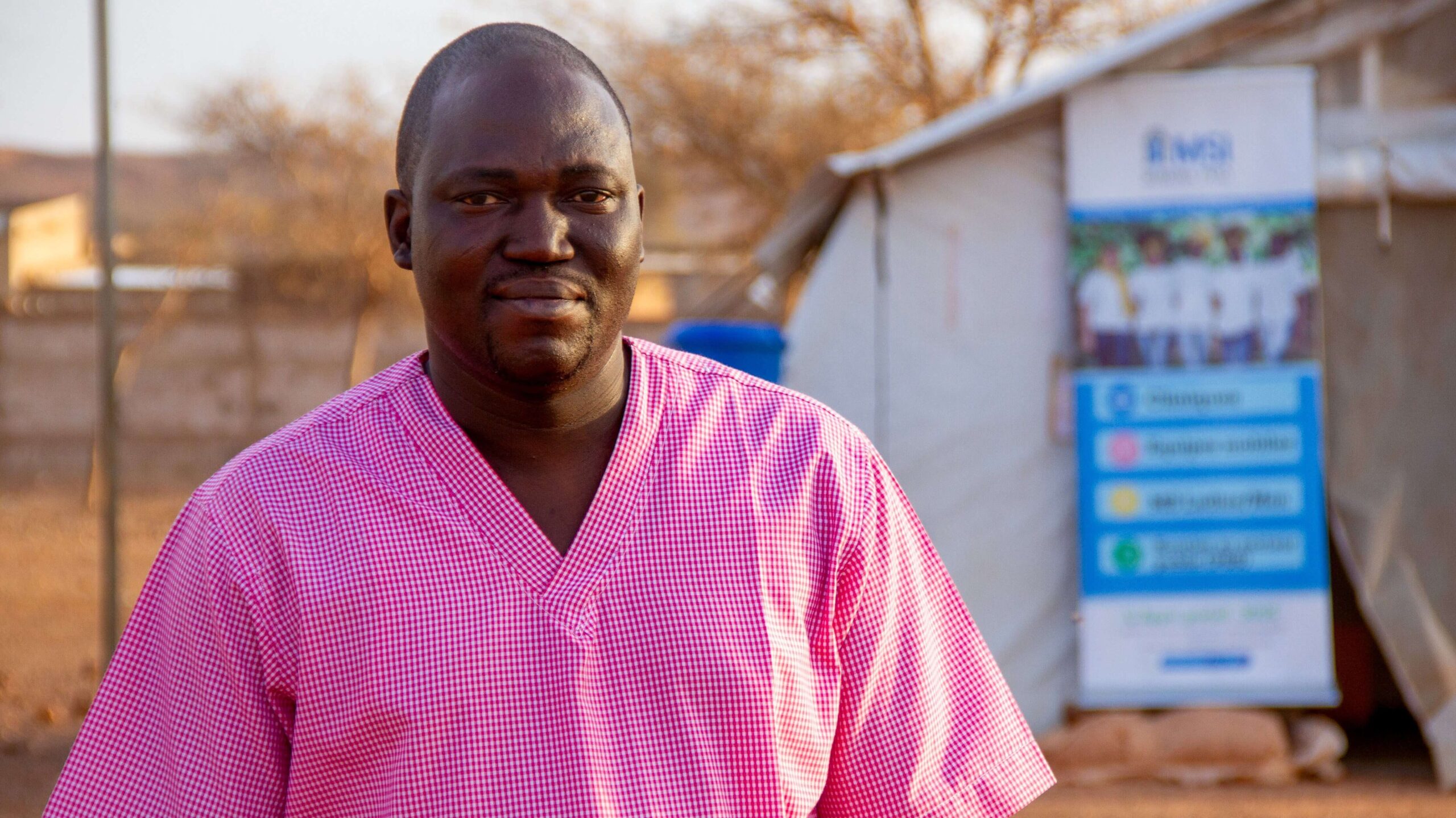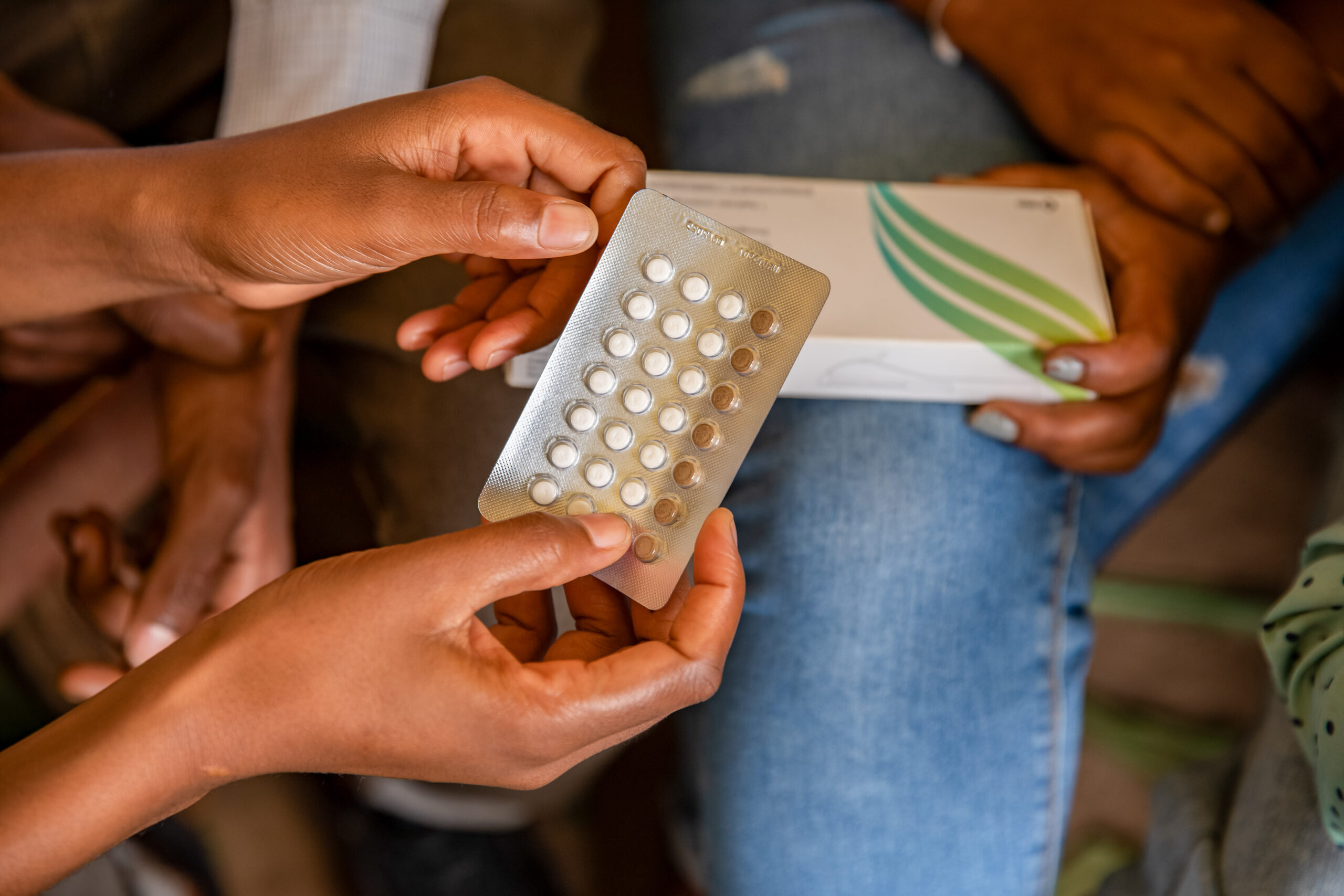To mark World Humanitarian Day, MSI’s partners in Pakistan share their stories from the frontlines of the flooding crisis.
In times of crisis, the need for sexual and reproductive healthcare rises while access falls. MSI’s local teams work in crisis and emergency settings, from the floods of Pakistan to conflict-affected Myanmar, ensuring that women’s reproductive health services remain wherever possible.
To mark World Humanitarian Day 2023 on 19th August, team members of MSS, a Pakistani NGO supported by MSI, share their stories from the frontlines of Pakistan’s flooding crisis.
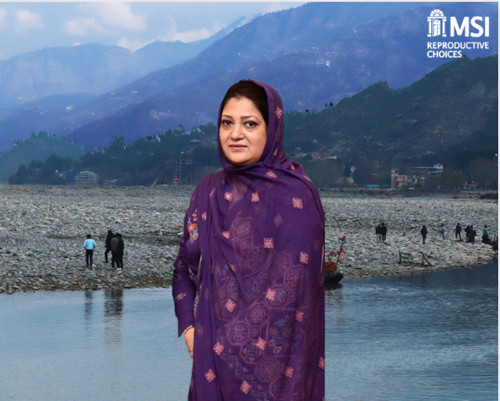
Dr Tasneem Fatima, Pakistan’s Director of Health Services, in her own words:
For those not living through it, the situation here in Pakistan must be difficult to imagine. In the summer of 2022, more than a third of our country — an area larger than Britain — was submerged under flood water in a climate disaster. Over 1,700 have died. UN Secretary-General Antonio Guterres said he’d “never seen climate carnage” at this scale. I certainly haven’t.
Violent monsoon rains and water from melted glaciers swept away villages, affecting 33 million people. People have lost their homes, businesses, even their clothes — and certainly any conventional access to healthcare.
Amid all of this, our MSS team remained resilient, and I could not be prouder. We’re the main organisation here providing sexual and reproductive healthcare, supported by the global MSI partnership. Our unique offering to this emergency response has been our 15 mobile outreach clinics traveling into affected areas to reach people where they are.
Going to the frontlines has been difficult, both logistically and emotionally. Anyone travelling into the flood-affected areas is risking their life, myself included. Some of the people we’ve come across have told me: “You are the first people to come here and help us.” Almost all our providers are women — their bravery has been extraordinary.
We’ve travelled to over 1,600 emergency flood relief camps, serving over 185,000 people with sexual and reproductive healthcare like contraception, also pitching in to provide primary healthcare where possible (like treatment for skin infections and diarrhoea). We’ve been distributing menstrual health kits so women and girls can manage their own menstrual health — an essential part of their dignity.
The main challenge we’ve faced is making sure people have access to healthcare workers, facilities, and supplies. We’ve collaborated with the government and other NGOs to face the magnitude of this crisis together.
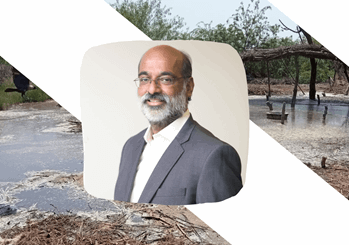
Shahrukh Alam Butt, Head of Social Franchise and Outreach, in his own words:
I’ve worked at MSS for nearly 29 years, and I’ve never seen anything like the floods. Pakistan is my home and most of our country has been badly disturbed. It was nothing short of mass destruction.
I’m glad to be part of a team that’s responding and helping people in urgent crises like these. MSS’ usual service delivery channels include 13 of our own static clinics and 335 private social franchise facilities. But our unique offering that enabled us to respond to the flooding emergency is our 15 mobile outreach teams. Our mobile clinics, each staffed with teams of healthcare professionals, are driving into the affected areas to visit emergency flood relief camps. We’re the main organisation here delivering sexual and reproductive healthcare to women and girls on a massive scale.
Soon after the floods, a pregnant nineteen-year-old woman in one of the emergency flood relief camps came up to one of our mobile clinics with her parents-in-law. She was in labour. Her husband wasn’t there—he had gone back to their village to try to rescue some of the remaining people. Our outreach teams usually only provide contraception and I can tell you that delivering babies is not normally part of their day! But as midwives they responded immediately and brought her into their care, delivering her baby safely into the world in the back of the van. The team transported her and her baby to the closest hospital to get appropriate vaccinations and post-natal care, before dropping her back to the tent where her family was now taking shelter. I can’t stop thinking about this woman bringing her baby into the world in the middle of an emergency flood relief camp, having just lost their home, money, everything.
Unfortunately, the damage has made it difficult, verging on impossible, for people to get the reproductive healthcare they need, or any form of healthcare for that matter. People were travelling upwards of 100km to get to healthcare facilities and, even then, they may find them flooded or empty of staff. That’s why out mobile clinics are crucial. They’re reaching people where they are.
Our teams are made up of incredible local healthcare specialists who can best provide these services. But we need more money and resources so we can reach more people. That’s how the global community can help us.
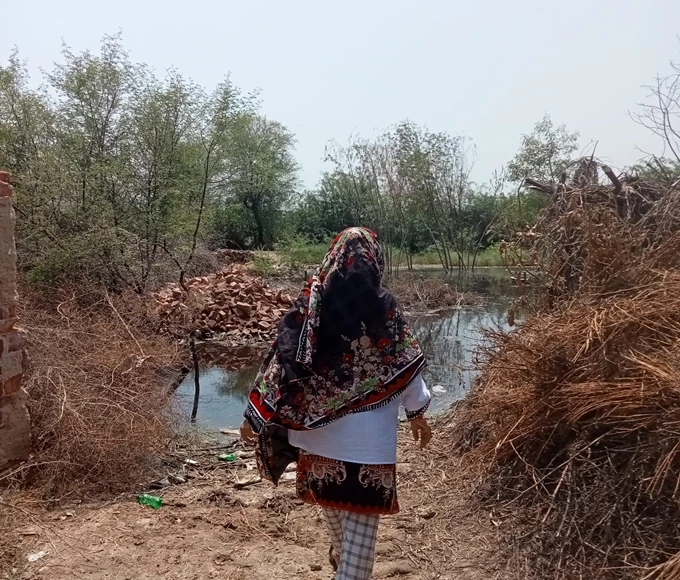
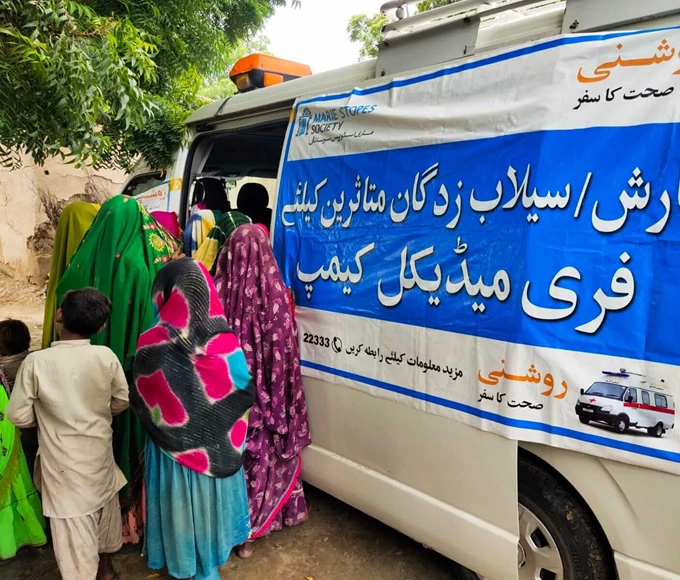
Pakistan is responsible for less than 1% of global greenhouse gas emissions. This is the reality of the climate crisis: the communities that have contributed the least are suffering the most.
The future impact of the floods is unimaginable. The damage and economic losses will be felt by the people of Pakistan for years to come, and a food crisis looms.
But what we know right now is there are millions of people in need of urgent help. As Dr Tasneem and Shahrukh have told us, people urgently need health services. And MSS are in Pakistan right now delivering high-quality, comprehensive, and inclusive sexual and reproductive healthcare—often an afterthought in crisis responses, and chronically under-resourced and under-funded by the global community. We must do all that we can to support MSS as their brave team members. They are driven by their belief that it’s essential that women and girls have access to reproductive choice, no matter what.
You can help us reduce health risks, prevent unintended pregnancy, and restore personal dignity for women and girls by providing them with the reproductive healthcare they need. If you believe that Pakistani women’s health and choices should be protected during this unthinkable time of crisis and loss, please donate today.






